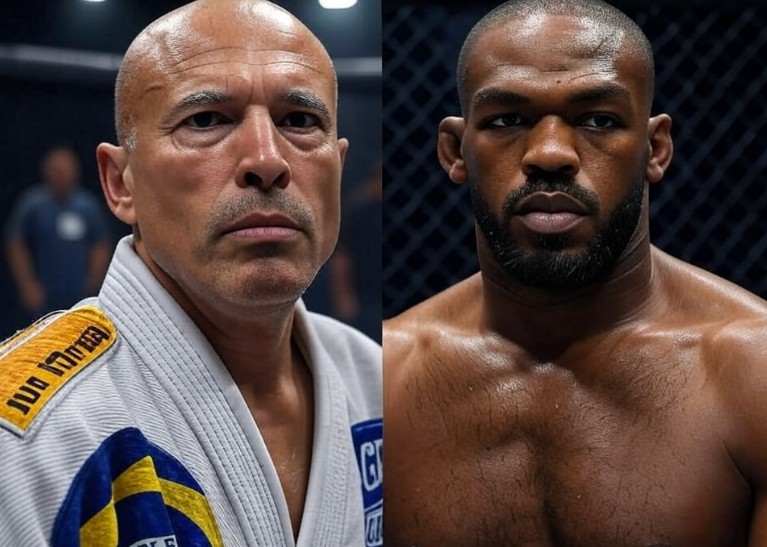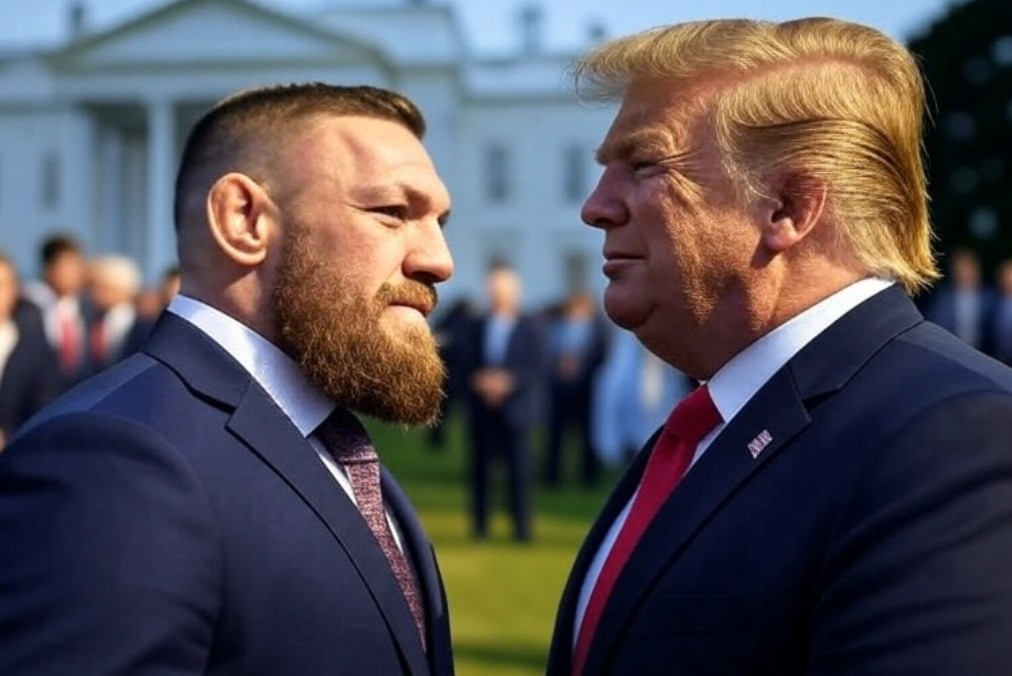In the annals of combat sports, Brock Lesnar stands alone as the only professional wrestler to transition to the Ultimate Fighting Championship (UFC) and claim the coveted UFC Heavyweight Championship.
A feat accomplished in just his fourth professional MMA fight on November 15, 2008, when he defeated Randy Couture at UFC 91, Lesnar’s rise remains unmatched. As of today, no other wrestler has replicated this extraordinary journey, cementing his legacy as a singular icon.
This exclusive report delves into what made Lesnar’s achievement possible, why no one has followed in his footsteps, and the unique attributes that set him apart.
The Path to Glory
Lesnar’s story began with a stellar amateur wrestling career at the University of Minnesota, where he secured the NCAA Division I Heavyweight Championship in 2000. This foundation propelled him into professional wrestling with the World Wrestling Federation (WWF, later WWE), where he debuted in 2002. His imposing 6’3”, 265-pound frame and explosive athleticism made him a standout, leading to a WWE Championship win in 2002.
However, after leaving WWE in 2004 to pursue NFL dreams (which faltered), Lesnar pivoted to mixed martial arts (MMA) with a debut in Japan’s K-1 Hero’s in 2007.His UFC debut came on June 2, 2007, against Frank Mir, where he lost via submission.
Undeterred, Lesnar refined his skills, winning his next three fights against Heath Herring, Min Soo Kim, and ultimately Randy Couture. At UFC 91, Lesnar’s raw power and wrestling dominance overwhelmed Couture, earning him the heavyweight title in a stunning 4:15-minute first-round TKO. This victory marked a historic crossover, blending the theatrical world of wrestling with the brutal reality of MMA.
Why Lesnar Succeeded Where Others Failed
Several factors contributed to Lesnar’s unprecedented success. First, his amateur wrestling pedigree provided a critical edge. Unlike many professional wrestlers who rely on scripted performances, Lesnar’s collegiate background gave him a legitimate grappling foundation, essential for MMA. His ability to control opponents on the mat, combined with his freakish strength, allowed him to dominate early in his UFC career.
Second, Lesnar’s physical attributes were unparalleled. At his peak, he combined size, speed, and endurance in a way few heavyweights could match. His athleticism, honed through years of wrestling and football, translated into a devastating presence in the octagon. This was evident in his ability to execute takedowns and absorb strikes, a skill set tailored for the heavyweight division’s physical demands.
Third, timing played a pivotal role. The UFC in 2007-2008 was expanding rapidly, seeking larger-than-life personalities to boost its mainstream appeal. Lesnar’s WWE fame brought instant recognition, drawing casual fans to MMA. The UFC capitalized on this, fast-tracking him to a title shot after only three wins, a decision that paid off with record-breaking pay-per-view numbers. This opportunity was a luxury not afforded to later crossover athletes.
Finally, Lesnar’s work ethic and coaching were instrumental. Under the guidance of trainers like Greg Nelson and Erik Paulson, he adapted quickly, learning basic striking and submission defense to complement his wrestling. His willingness to evolve, despite his limited MMA experience, set him apart from others who struggled with the transition.
Why No One Has Replicated His Feat
Since Lesnar’s title reign, which included a successful defense against Frank Mir in 2009 before losing to Cain Velasquez in 2010, no WWE-contracted wrestler has won a UFC heavyweight championship. Early UFC pioneers like Ken Shamrock and Dan Severn, who won titles in the 1990s, entered MMA with pre-existing martial arts backgrounds before wrestling fame, distinguishing their paths from Lesnar’s. More recent attempts have fallen short.
CM Punk, a WWE star, debuted in UFC in 2016 and lost decisively to Mickey Gall, lacking the athletic foundation Lesnar brought. Batista, another WWE icon, fought once in MMA in 2012, losing to Vinicius Quaroni, and never pursued UFC further. Even wrestlers with amateur credentials, like Bobby Lashley, who competed in Bellator and won a title there in 2009, have not crossed into UFC heavyweight success.
Several barriers explain this gap. Modern UFC standards demand extensive MMA training, with fighters often requiring years of experience before title contention. The heavyweight division, in particular, has grown more competitive, with athletes like Stipe Miocic, Francis Ngannou, and Jon Jones raising the technical bar.
WWE’s current talent pool, while athletic, lacks the amateur wrestling pedigree Lesnar possessed, and the organization’s grueling schedule leaves little time for MMA preparation. Additionally, the UFC’s cautious approach to crossover stars, wary of repeating Lesnar’s accelerated path, has slowed opportunities for others.
Lesnar’s Lasting Legacy
Lesnar’s reign ended with health challenges, including diverticulitis, and a return to WWE in 2012, followed by intermittent UFC comebacks (e.g., his 2016 win over Mark Hunt and 2018 loss to Daniel Cormier).
His final UFC fight was in 2020 against Derrick Lewis, after which he retired. Yet his initial title run remains a benchmark. Lesnar’s unique combination of amateur wrestling excellence, physical dominance, perfect timing, and UFC’s willingness to take a gamble created a perfect storm that has not recurred.
As the sport evolves, with fighters increasingly starting in MMA rather than transitioning from wrestling, Lesnar’s achievement grows more remarkable. No wrestler since—whether from WWE or elsewhere—has matched his feat, leaving him as the lone bridge between the squared circle and the octagon’s heavyweight throne.
For now, Brock Lesnar’s name stands etched in history as the one who did the impossible, a title no one has yet reclaimed.


